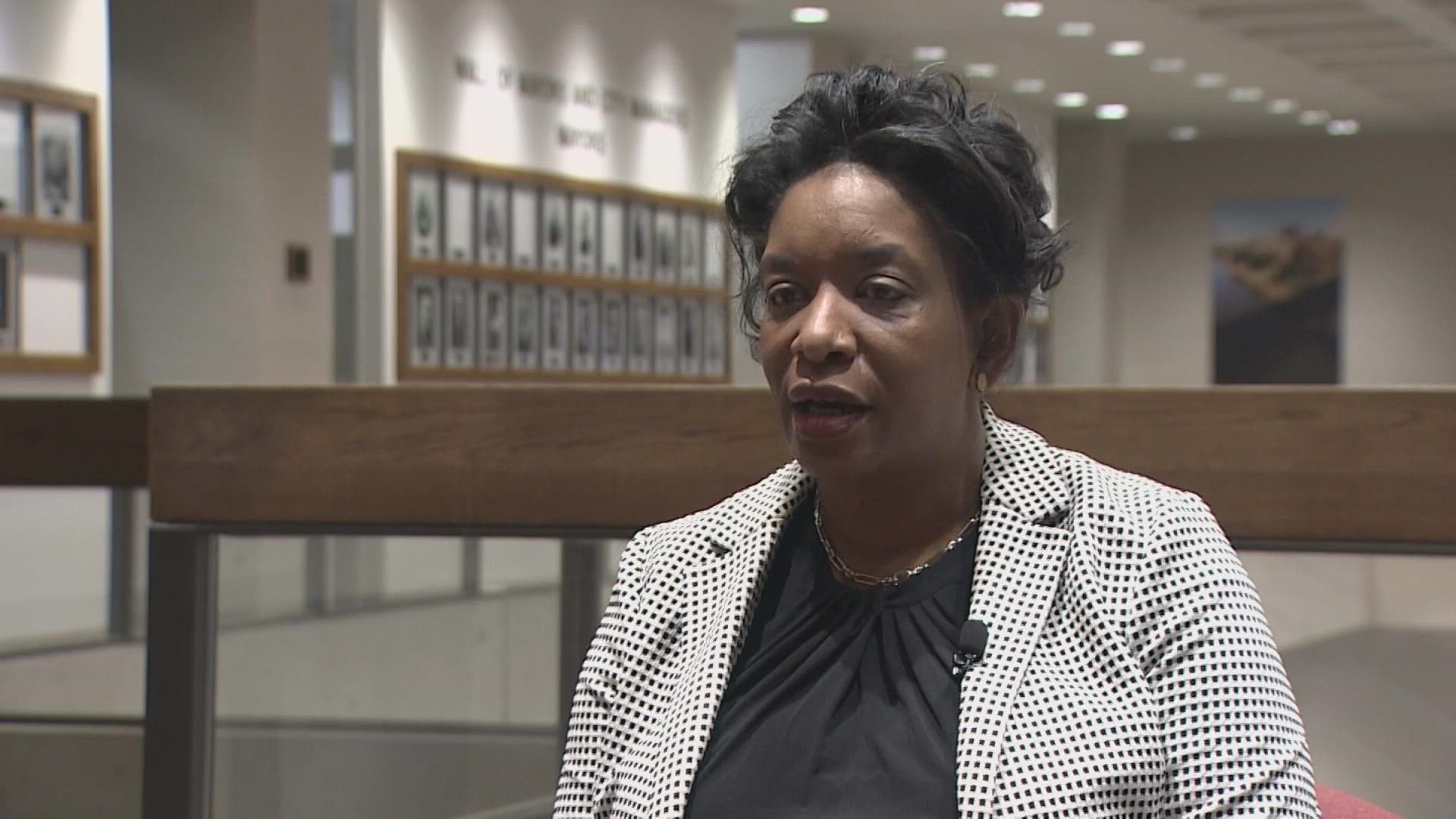FORT WORTH, Texas — During the many protests in Fort Worth after the murder of George Floyd, director Kim Neal was just a few months into her job as Fort Worth’s first police monitor.
It's a position created amid ongoing discussions and actions focused on improving the community police relationship after an incident in 2016.
Neal relocated to Fort Worth from Cincinnati, Ohio, bringing many years of experience on police accountability. The monitor director's position stems directly from a city-created task force on race and culture made up of 23 people from across the Fort Worth area.
"So, for the community, it means transparency and accountability," said Neal.
The responsibilities for Neal and her staff include hearing community complaints and making sure there is officer accountability. The Office of Police Oversight Monitor is also wanting to hear good things about officers, as well, which helps add balance.
Neal said, "So just like we want to hold the police department accountable for what they do in our community, we also want to be accountable to the community."
The office started in February 2020 and has just released its first official report on many of their findings and recommendations to the Fort Worth Police Department, which also includes recommendations that have been accomplished and others still in progress.
Oversight group surveys uncovered quality of life issues surrounding criminal justice, health and even housing to name a few.
Neal wants every citizen in Fort Worth to feel their voice is heard.
Neal is no stranger to police accountability. As a citizen she has worked closely with the members of the National Organization of Black Law Enforcement Executives. Doing so has helped her refocus her career path.
"Now that I've focused my career primarily on police," said Neal, "it's more about really ensuring that policing is equitable and fair. I really want to make sure that we have the best practices that we possibly can in Fort Worth."
"Well, I take it very seriously. I'm very passionate about what I do. I've been doing it for a long time. My background is compliance and equity across the government. I worked at federal, state and as well as at the local level," Neal said, "and we really want to reach out to our more marginalized neighbors who feel that policing is not as fair and equitable."
While the oversight report also reveals progress addressing things like traffic stop reviews and the department's de-escalation policy, their use of force policy is still a work in progress -- including rules for officers in a foot pursuit.
Neal believes they're making progress despite many hurdles.
Neal said, "I think our biggest hurdle is there's so much work to do and such a big city to do it."
Neal purposely ended the oversight report with a community mural snapshot located at 200 Carroll Street in Fort Worth. The mural contains words about facing change.
"It means that we all have to work together to solve the problem," said Neal.
Neal and her staff have scheduled ongoing community meetings for public input. OPOM will hold a public hearing at 6:30 p.m. Monday, May 9, at the Como Community Center located at 4900 Horne Street in Fort Worth.
Both meetings are open to anyone interested in observing or participating in dialogue about the community-police relationship in Fort Worth.

